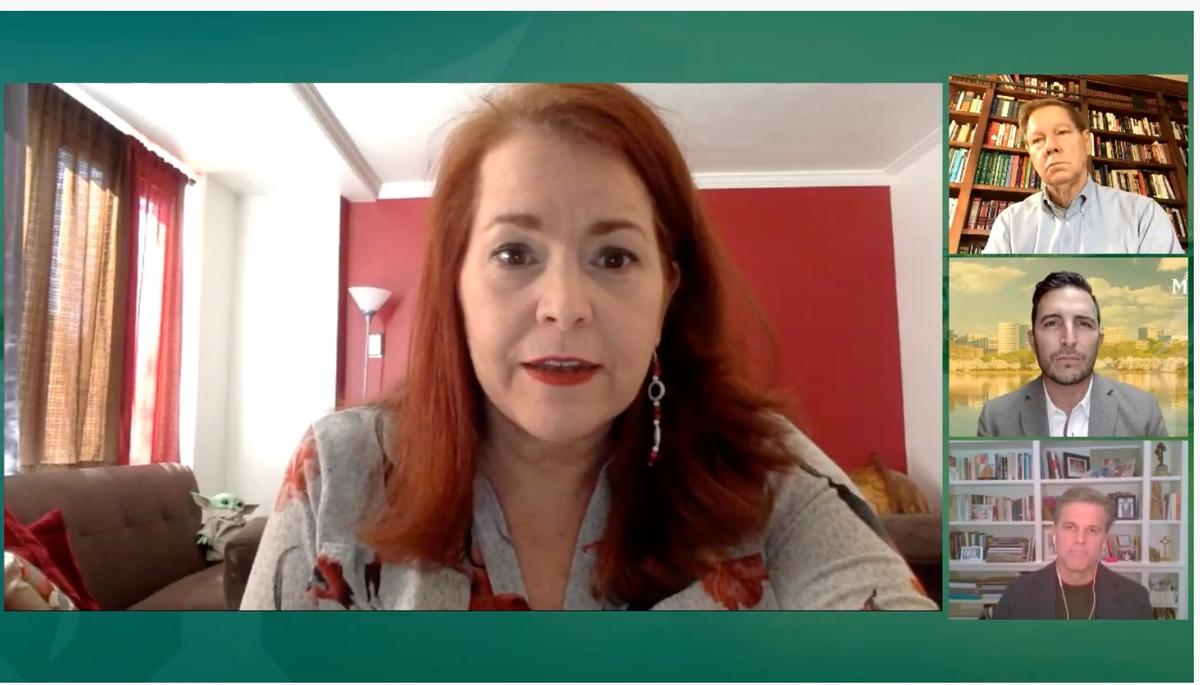In This Story
Originally published on November 9, 2020
There's a Power Lunch every Friday at the Schar School of Policy and Government until January 15. Professor Justin Gest moderates a virtual discussion with influential political leaders, journalists, and experts addressing crucial topics affecting the next four years of U.S. public policy. All events stream live on the Schar School’s YouTube channel. (The Schar School is closed the Fridays of Thanksgiving, Christmas, and New Year's Day.)
Here is a recap of last week’s program on the topic of “National Unity.” (N.B.: The conversation took place before Joe Biden was projected to be the next President of the United States.)
- Tom Davis, former Republican Congressional representative from Virginia’s 11th District:
- “Let me get inside the political head today and note that, for example in the House of Representative, the only race that counts is the primary election, not the general election. So they hew their time, attention, and their voting records to primary voters who are a very thin ideological slice of the electoral pie. These are the people that don’t like compromise, and think they’re right, and the other side is wrong.”
- “What we’ve got to understand is that the two sides don’t trust each other. There is not trusted medium right now. Back when I was growing up, we had Walter Cronkite, who was a trusted figure. There is no figure in the news who is widely trusted by both sides anymore. You might knock Fox, or MSNBC, or the mainstream media, but I think that they have been so trashed along the way, and they have been wrong on so many issues on all sides…”
- Wendy Feliz, Director of the Center for Inclusion and Belonging at the American Immigration Council:
- “Think of the YMCA, or think of parks, or libraries, or museums…these are the institutions of American life. This is where people go…These places were not created to foster inclusion and belonging and bridge building and dialogue, but their programs can be modified and built out. There’s no reason why, if I’m going to a food bank, that there can’t be an experience there that allows me to connect with my neighbors on a deeper level.”
- “We live, basically, in a society and in a collection of societies that were created and shaped by a majority group, by one group that decided how this would be. And everybody who has commonsense had to adapt to that society and be the dominant culture. It’s not working anymore. We’re asking people to integrate, to assimilate, to act a certain way in order to be included in society.”
- Tim Shriver, Chairman Special Olympics and founder of UNITE:
- “If you go back, Washington’s Farewell Address is the necessity of the president acting differently than every other elected official within the system of government, as the person who leads the whole. I think President Obama tried, I think President Bush tried, I think President Clinton tried.”
- “I think the evidence would suggest that most people would agree with that premise, that 2020 is rock bottom. Most people think the country is at a low point, most people are struggling to find a path forward, most people are worried that we don’t have a path forward, that we’re more divided than ever.”
Justin Gest’s Takeaway: “Over the last decade, Americans of different political stripes have exerted enormous energy under cutting the very legitimacy of their political opponents. They have questioned their morality. They have questioned their patriotism. They have questioned their faith. They have questioned their rationality. They have questioned their belonging. And that has all culminated in a 2020 election, in which both sides have hoped for a repudiation of the other side’s politics, and a validation of their own world view. But we are left with an impact that has left no one validated, no one repudiated, and all sides are clearly here to stay.”
Next Power Lunch: “Healthcare Policy” with Tom Daschle, former US Senator (D-SD), Zeke Emanuel, Center for American Progress, and Sarah Kliff, New York Times. See previous Power Lunch programs.

